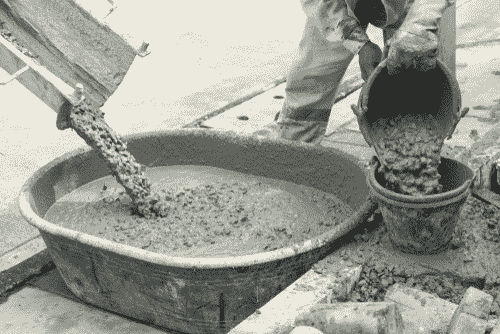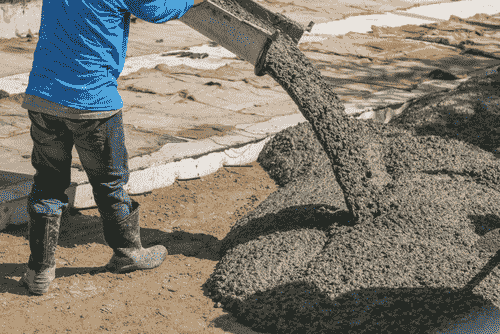Comprehensive Overview to Concrete: From Installment to Ending Up Touches
Comprehensive Overview to Concrete: From Installment to Ending Up Touches
Blog Article
Unveiling the Eco-Friendly Advantages of Using Recycled Concrete in Sustainable Building Practices
In the world of sustainable construction methods, the usage of recycled concrete stands as a crucial yet usually undervalued source. Beyond its standard applications, recycled concrete offers a myriad of green advantages that expand far past the confines of standard building and construction materials.
Ecological Advantages
Undoubtedly, among one of the most considerable advantages of using recycled concrete is its positive influence on the setting. By including recycled concrete into building practices, there is a significant decrease in the requirement for new resources, bring about preservation of natural deposits. This procedure helps in preserving accumulations, water, and energy that would certainly have been made use of in creating new concrete. Additionally, using recycled concrete reduces the amount of waste being sent out to garbage dumps, thus minimizing environmental air pollution and easing the stress on land fill capabilities.

Furthermore, the production of traditional concrete is a substantial resource of carbon discharges due to the energy-intensive process of concrete production. In contrast, recycled concrete has a lower carbon impact as it lowers the need for new concrete production. This decrease in carbon exhausts adds to mitigating climate change and sustains lasting building and construction methods. Generally, the ecological benefits of making use of recycled concrete are considerable and play a critical duty in advertising environmentally friendly building and construction techniques.
Cost-Efficiency
Achieving cost-efficiency is an extremely important factor to consider when assessing the application of recycled concrete in building tasks. One of the vital advantages of making use of recycled concrete is its cost-effectiveness compared to traditional concrete. The manufacturing of recycled concrete involves less energy and sources as it uses existing products, decreasing the total project expenses significantly. Furthermore, the schedule of recycled concrete in your area can even more reduce transport expenditures, making it a more cost-effective option for building and construction jobs.
Furthermore, using recycled concrete can bring about financial savings in landfill costs by diverting concrete waste from disposal sites. This not only reduces the environmental impact but also gets rid of the expenses connected with waste removal. The sturdiness and efficiency of recycled concrete are similar to traditional concrete, guaranteeing that cost savings do not endanger the top quality of the building and construction.
Longevity and Toughness
Recycled concrete deals comparable, if not remarkable, resilience and toughness homes to traditional concrete - Concrete. With innovations in processing strategies and quality control, recycled concrete can satisfy or exceed the efficiency criteria of traditional concrete.

Waste Decrease
Effective waste decrease techniques play an important duty in the lasting usage of resources within the building and construction sector. Waste decrease is a key benefit that contributes considerably click to read more to ecological preservation when it comes to making use of recycled concrete. Typical construction methods frequently produce considerable quantities of waste, specifically in the form of concrete rubble from demolition sites. By integrating recycled concrete right into building and construction projects, this waste is repurposed and diverted from garbage dumps, minimizing the total ecological impact of building and construction tasks.
Recycled concrete not just aids in lessening the amount of waste that winds up in landfills yet likewise saves natural deposits by reducing the demand for brand-new accumulated products. This procedure of waste decrease advertises a circular economy within the construction field, where products are reused and reused to produce a more lasting market. Additionally, the usage of recycled concrete can cause cost financial savings for building projects, as it is often extra economical than sourcing and transferring brand-new materials. To conclude, waste decrease through the utilization of recycled concrete is an essential element of sustainable construction methods that benefits both the building page and the atmosphere market as a whole.
Energy Conservation
When it comes to using recycled concrete in construction, substantial energy cost savings are accomplished contrasted to standard concrete production. The procedure of generating recycled concrete entails squashing and recycling existing concrete materials, which consumes less energy than mining, processing, and transporting raw products for brand-new concrete manufacturing.
Final Thought
To conclude, the utilization of recycled concrete in lasting building practices offers countless ecological advantages, cost-efficiency, toughness, toughness, waste decrease, and energy preservation. By incorporating recycled concrete into construction jobs, we can add to a much more sustainable and ecologically pleasant future. It is vital for the construction industry to focus on making use of recycled products to help in reducing the environmental impact of building and construction activities.
One of the key advantages of making use of recycled concrete is its cost-effectiveness contrasted to traditional concrete.Furthermore, the use of recycled concrete can lead to financial savings in garbage dump prices by drawing away concrete waste from disposal sites. The sturdiness and efficiency of recycled concrete are comparable to conventional concrete, ensuring that cost savings do not jeopardize the high quality of the building and construction.

Report this page